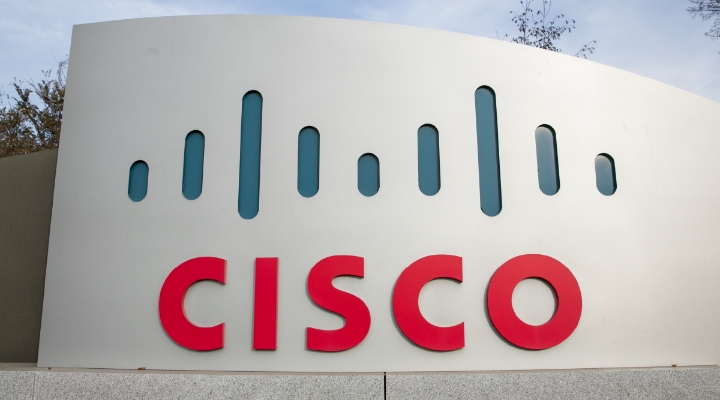Kate Lin: Welcome to Morningstar. After the Christmas rally, mega-cap stocks in the U.S. had a tough start in the new year, including popular AI, tech, and software sectors. Could it be that investors' love for AI has fizzled out? We're asking Taosha Wang, a multi-asset portfolio manager at Fidelity International.
Fidelity Sees Two Reasons Behind the AI Hype
So Taosha, tech had a pretty good year in 2023, buoyed by AI outlook and earnings beat. Why do you think this will or will not continue in this year?
Taosha Wang: Hi Kate. Great to be here. I think there's both structural and cyclical reasons why we're going to continue to see the tech sector, including the very much hyped about AI companies, continue to do well into the next year.
From a cyclical perspective, we see that interest rates have come down, which is usually a positive for the gross interest rate sensitive companies and sectors. Some of the recession fears that have sort of clouded over the U.S. economic outlook has also sort of receded a little bit.
On the more structural front, which is really related to the fundamental of the sector, we see that AI is producing essentially new opportunities for investors to get excited about the sector. Some people have called the latest AI development including the generative AI sub-sector to be the "iPhone moment" of AI. We may be at an important milestone in technology history where the latest invention would be a trigger to a whole new generation of innovations, of new business ideas, business models that can come for the next few decades. That is certainly the optimistic case that are getting investors excited about at this moment.
What's After a Weak Start?
Lin: So, specifically on AI-related stocks, what are your expectations on a rally now? Is the rally done or poised to broaden out to more beneficiaries?
Wang: We definitely see that the rally can potentially broaden out into a bigger ecosystem around the AI concept. The way we think about the AI ecosystem is in the form of a stack. So different layers in the system. At the bottom layer, there is the hardware and the semiconductor chip of it. Above that, there is a cloud computing which is as many of us know, AI is actually very compute intensive.
And on top of that would be the different applications that actually put this technology into real business use cases. The way we think about it is that so far a lot of the excitement has been at the bottom layers. You know, we're excited about the chip capabilities. We're excited about the cloud computing usage. But really this technology needs to be put into actual business and actual scenarios, application scenarios, before we can truly make a big impact on the world as the technology currently promises. So we do look forward to seeing more value being created into the different parts of the stack of the AI ecosystem.
Certainty and Valuations
Lin: Right. That's very interesting. Let's put these views into the context of today's market. How are you identifying the opportunities right now with these views, and what are the gauges?
Wang: [As] investors, we often think about things from a risk-reward perspective. If you put it in the context of AI, we think about it from certainty versus valuation, which is a form of trade-off as well. Going back to the AI stack that we were talking about, the bottom layers are essentially chip manufacturer and cloud computing service providers. And we know there are a lot more certainty to these two layers because the big players in these two layers are pretty obvious to everyone.Where there's a lot more uncertainty is in the top layer, i.e., the application layer.
AI promises to be useful in so many different scenarios and promises to be so general purpose, so adaptable, so easy to use. So it's really up to different companies to come up with how they can most effectively use this tool, and there is the most uncertainty and most possibilities with different sectors, scenarios, business cases, and that's where I think valuation hasn't yet caught up and potentially there's the most reward. So we're really looking at the whole stack. You know, in some places, we will find more certainty but slightly more premium valuation. In other places, we'll find less certainty, but a more attractive valuation to start with and then a corresponding potentially high upside return for our investment. So really taking a very differentiated approach to the whole investment thesis.
How to Invest
Lin: And so, in your multi-asset portfolio, do opportunities in the AI-related field lie only in equities? What is the technical play in the positioning right now?
Wang: I think equity is certainly one way to express this exciting theme, especially because equity is probably the best expression for idiosyncratic long-term compounding growth. However, and then, as we were alluding to earlier, we are invested across the entire stack with different risk profiles involved.
But beyond equity, there's certainly a different way to approach this investment thesis with different asset classes. For example, there is a genuine and widespread excitement about what AI can do for the entire economy around the world. And with businesses getting involved,that creates a huge investment demand and that itself is an immediate uplift to the growth potential and GDP growth through simply corporate investments. And that has an immediate effect on how we assess the overall economic outlook. You know the chances of potential recession, if any, going further down the road as this technology becomes more adopted, there's going to be the productivity boost, which is the great promise of AI. With greater productivity, you can uplift future economic growth. You can potentially have higher neutral interest rate just because there is a greater demand for capital for all kinds of investments.
So certainly there are macro, longer-term angles to this AI theme beyond just picking the single stock winner as well. So we are keeping a really a multi-asset approach to this whole theme and explore the theme from various different angles in the capital markets.
Lin: Awesome. Thank you so much, Taosha. For Morningstar, I am Kate Lin.







:quality(80)/cloudfront-us-east-1.images.arcpublishing.com/morningstar/54RIEB5NTVG73FNGCTH6TGQMWU.png)
:quality(80)/cloudfront-us-east-1.images.arcpublishing.com/morningstar/I53I52PGOBAHLOFRMZXFRK5HDA.jpg)



.png)



.jpg)





